Taking part in a
televised debate can be a make-it-or-break-it moment for any presidential candidate. But what if you're not allowed to debate at all?
A diabolical Catch-22As many of you are aware,
not all candidates are allowed to debate in a given broadcast debate. This has been a problem for years. During the last presidential election
both the Libertarian and Green party candidates were actually arrested trying to get into a debate they had been explicitly banned from!
Most candidates are excluded from the debate simply because the Media (big M) deems them minor/unknown/unpopular candidates.
Well, of course they're unknown; they're not allowed to debate on national TV!! Bit of a
Catch-22, wouldn't you say?
A most insidious and foul Catch-22, I would say. Here's why: We supposedly live in a democracy. It's not really a democracy, it's a republic (that's a story for another day), but we like to pretend that the people really have a say. The hidden reality is that the bosses of the major television stations are making decisions that define the course of our nation, and they're doing it from private boardrooms sequestered on the 100th floor of a skyscraper, and there's nothing any of us can do about it because they aren't elected or accountable to anybody but the company's shareholders -- ya know... other rich people.
Why should the CEO of CNN have such power? Why should he (and it's almost certainly a
he) determine who will and won't be the next president of the United States
before the people ever get a chance to vote in a primary?
Isn't that censorship? Isn't that more like an
oligarchy than a democracy? Why do we let them get away with it?
Well, until recently most people didn't even know about the problem. And we didn't have the power to make a difference anyway. But things are changing.
Social Media saves the daySocial Media has finally offered regular people like you and me a voice. Sites like Digg,
while not perfect, have enabled users to vote (you know, like a democracy) on what stories they think are worthy.
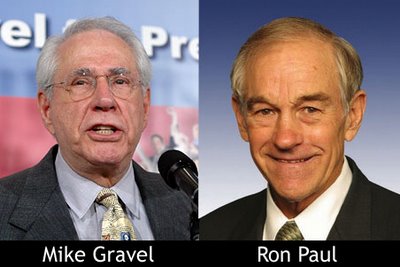
Two candidates,
Ron Paul and
Mike Gravel, owe most of their young supporters to the users of two social media sites: Digg and Reddit. Without those two sites neither candidate had a hope in hell of cracking the oligarchy and getting significant, objective coverage by the mainstream media (MSM).
Why does the media censor and ostracize certain candidates?The candidates that find themselves locked out of televised debates tend to have a few things in common: They tend to be unpopular or unknown (but that is not always the case). Their campaigns are usually poorly funded (maybe because it's hard to raise funds if you get no coverage) and sometimes they have views that are contrary to the political mainstream.
But sometimes the political mainstream is very much at odds with the desires of the voting public. A perfect example is the continued prohibition of cannabis (you know: "marijuana"), an issue on which the politicians are most definitely out of step with most of America, which
favors medicinal pot by an astonishing 78% margin. Net candidate
Mike Gravel recently came out in support of legalizing cannabis, which he says should be for sale in liquor stores. For a mainstream, "media-approved" candidate, such a position would be political suicide. Why?
Perhaps the media has been shaping our political landscape for such a long time nobody can even remember a time when they weren't. Perhaps there are certain forces at work behind the scenes that determine what is considered politically acceptable and what is considered "extremist."
It's hard not to see the media as a controlling, suppressing force when they blatantly censor certain candidates.
Ron Paul's performance in the recent Republican debate at the Reagan Library was hailed by many observers, but when it came time to review the field and do some analysis ABC News made a curious omission: Ron Paul.
He wasn't even available as an option for viewers to vote for.
He wasn't mentioned anywhere in David Chalain's analysis. If not for a
web uprising (involving Digg and Reddit) Ron Paul would probably still be excluded. When ABC finally backed down (after deleting a storm of comments asking, "Where's Ron?") Ron Paul ran away with a landslide victory in the
online poll. The numbers are incredible (and no doubt skewed by a reaction to the censorship). Paul clearly has a massive groundswell of public support.... but in the corporate realm he has apparently earned only
hand-waving dismissal and contempt.
What are we supposed to think of this? When there are 10 candidates at a debate and viewers are only allowed to vote for 9 of them is that not censorship? Is that not electioneering by a major corporation?
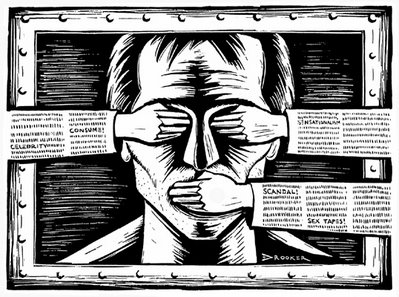
And when they back down and include the suppressed candidate and he wins the poll, how do they respond? They write
an article in which they find people to scratch their heads and say, "who knows how this Ron Paul got popular. Must be sumthin' to do with them internets." Then they conclude he has no chance of winning and that this is just an exercise in teenage rebellion (or something) and wave their hands, content that they will never have to talk about
him again.
Democratic candidate
Mike Gravel has experienced the exact same treatment, but on the other side of the aisle. Gravel and Paul are both painted as "extremists" within their respective parties, so we'd can conclude that Paul is a right-wing extremist and Gravel is a left-wing extremist, right?
Not quite. Both candidates are populists, espousing "common sense" positions that many average Americans hold, but which are not endorsed by many mainstream politicians. Both are opposed to the Iraq War (and always were), both question Prohibition, both are wary of a pre-emptive strike against Iran and both are suspicious of the corporate media that excludes them from debates. In short, they have a lot in common with the public they are trying to represent.
Meanwhile, the Media's favorite Republican candidate,
Rudy Giuliani, goes around saying fascist shit like this:
We see only the oppressive side of authority. Maybe it comes out of our history and our background. What we don't see is that freedom is not a concept in which people can do anything they want, be anything they can be. Freedom is about authority. Freedom is about the willingness of every single human being to cede to lawful authority a great deal of discretion about what you do. [ Interruption by someone in the audience. ]
You have free speech so I can be heard.
Is that what most Americans believe? Wasn't America founded by overthrowing the "lawful authority" of the British? And this "Freedom is about authority" stuff sounds like a parody of George Orwell's
1984... but Rudy was being serious! "You have free speech so I can be heard"?!! Saturday Night Live couldn't parody Rudy any better than he does himself.
Which candidate is really an "extremist"? Which candidate is fundamentally out-of-line with the thinking of mainstream America? Well, maybe America really does want fascism instead of freedom, but the noise on the internet would seem to indicate otherwise.
Media Control and ManipulationIt seems like ancient history now, but it was actually the recent past when the mainstream media controlled every avenue of information and expression in this country. Nowadays we can talk about these things and send our message out to a wide audience, but as recently as 12 years ago it simply was not possible for a middle class person to route around the MSM. Suddenly most people can afford machines that are more powerful than a printing press, and allow common people to talk to each other without the Media's filter. That's why the Media is so upset about blogging and social media -- they're so used to having an absolute stranglehold over the conversation in this country.
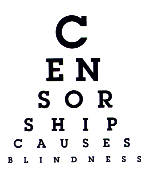
The Media is used to controlling:
- what information citizens receive
- what information citizens are allowed to share with one another on the national stage
- discussion and framing of issues in mainstream press
- which issues receive national coverage (and which are ignored)
- who gets to talk about the issues in the press (and who doesn't)
- how political actors are portrayed (villain or hero or neutral)
Social Media smashes that control grid and puts power in the hands of the many, rather than the few. This is a recent development so the full ramifications are not yet clear, but one thing we are finding out is that the Media has been using their incredible power to highlight certain candidates and suppress others.
The media has a paternalist streak that is really out of place in this day and age.
The Washington Post thinks they know best and they aren't afraid to tell you that they already
know Gravel & Paul are not going to be elected, so why don't we just eject them from the debates already?
The Democratic debate in South Carolina featured eight candidates, while 10 crammed into the GOP debate in California last Thursday. Voters trying to sort out their presidential choices aren't helped by debates cluttered with the likes of Mike Gravel (hint: he's a former senator from Alaska) on the Democratic side and Ron Paul (hint: he's a libertarian House member from Texas) among the Republicans.
Thank goodness for our dear corporate masters. If they didn't come in any set things straight we'd have to
learn somebody's name and what they stand for. MY GOD! The very idea exhausts me.
Sarcasm aside, this sort of thing has been going on for generations. That's why an editorial like the one above doesn't seem odd to them; this is standard operating procedure! The Media has identified the candidates they don't like (the ones that aren't easily bought/co-opted) and now they've decided to tell you, Dear Voter, than you needn't concern yourself with these troublesome miscreants. Big Media will make things simple for you by excluding them.
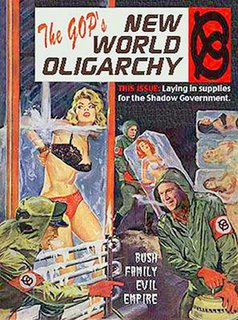
...But wait a minute. Isn't this a democracy? Don't the
voters decide who is voted off the proverbial island?
Well, now you know better. That is
not the way America works. America is run by a ruling class of oligarchs
no different than the ones who control Russia. The difference is the American media freely admits that oligarchs run Russia, but they would sooner give their mansions to the poor than admit America is the same.
The exact reverse scenario plays out in Russia where the Russian (government/oligarch-controlled) media is free to disparage America and mock its corrupt institutions, while speaking ill of Russia is a good way to get your broadcasting license revoked.
The awful truth is that America has long been controlled by the rich, just like most nations throughout history. They have remade American society and government to suit themselves and they have grown very comfortable on their throne.
What is an Oligarchy?Stephen Fleischman, himself a former mainstream media man,
tackles the reality of the Oligarchy in an article for Counterpunch:
My dictionary says an oligarchy is a form of government where most or all political power effectively rests with a small segment of the society. As Wikipedia, the popular online encyclopedia, puts it, "Oligarchies are often controlled by a few powerful families whose children are raised and mentored to be heirs of the power of the oligarchy, often at some sort of expense to those governed." Does that sound like the administration of George W. Bush?
Why, yes it does! That must be a weird coincidence. ... right?
I wish I could tell you more about the Oligarchy, but it operates in secret and prefers that most citizens do not even know it exists. In fact, by using the mainstream media the Oligarchy is able to program us so that even if we are provided with irrefutable evidence of the existence of said Oligarchy, many will still deny it and disbelieve it.
You're probably wondering "How?!"
Have you ever been called a "conspiracy theorist?" Well, it tends to end any meaningful discussion of the facts and immediately puts the onus on the accused to defend himself from the charge leveled at him. The Media has a few "magic words" like this at their disposal. It's amazing how effective they can be. Nobody wants to be called a conspiracy theorist... but isn't that just an
ad hominem attack? It's no different than calling someone a poopy-head.
I suspect there may be more to it than that. In a future post I'll look into how the Oligarchy exploits its control of the media for fun and profit.
What should we do about it?At a certain point we in the 'net community need to stand up and say, "To hell with you guys. We're hosting our own debate and we'll invite everybody!" We just need to set up a website with a group of people dedicated to hosting the cyber-debate; we'll get some buzz going and then what candidate will say "no" to a chance to get his/her message out to such an elusive audience?
The media can't be trusted to define, design and delineate the ground rules for our national debate. Candidates are having trouble getting their message across because of the media's filter. It's time to cut out the middle man.
Labels: America, censorship, conspiracy, corporatism, corruption, drugs, elections, elite, MSM, oligarchy, Shadow Government, technology, TV

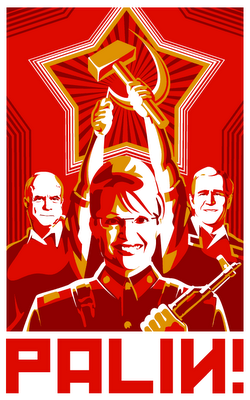




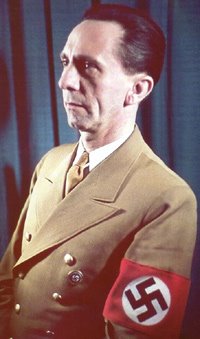
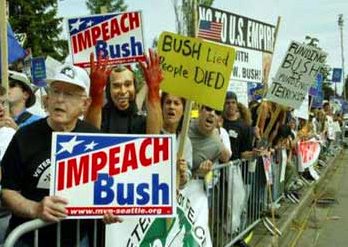
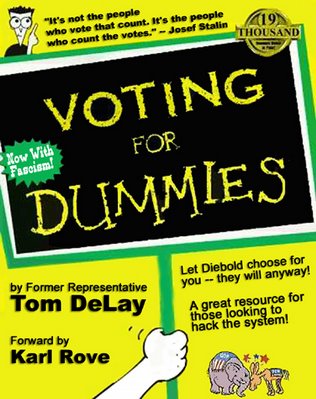
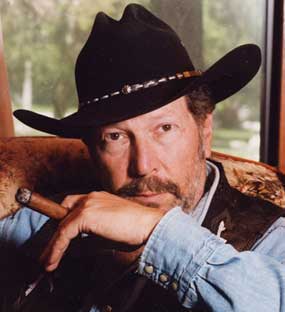
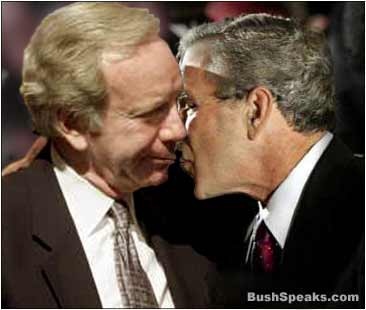
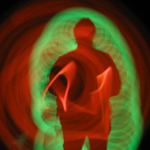



Pretty well-reasoned, I thought. But I definitely want to challenge some of his assertions. Here is my response:
My apologies for the confusion over the water-diety. I didn't make it clear, but I was referring to something similar to a water elemental -- basically a spirit that is infused with one of the four elements (water is a compound, of course, but it's also one of the classical elements), Fire, Earth, Air and Water (the Chinese add a 5th: Metal). It's probably not a very good analogy since it's completely hypothetical and imaginary, at least as far as science is concerned.I grasp the stamp hobby analogy just fine. It's a poor analogy, though, which you seem unable to grasp. Here's why:
Collecting is an activity. Philately is a hobby. However, you could still be a philatelist and not actually collect anything. How? By knowing a heck of a lot about stamps, that's how. Philately is the study of stamps, not the act of collecting them. You could be an expert in stamp lore without actually having a collection or wanting one.
Actually, maybe the analogy is not so poor, since once you learn how faulty it is you might be able to understand how atheism could be considered a religion. Of course, this does depend on semantics to an extent.
An extremely simple definition of religion is this: "A religion is a set of common beliefs and practices generally held by a group of people." Boom. You hold beliefs in common with other atheists (you refuse to worship "known" gods) and your practices are also similar in that you refuse to attend worship services (I assume. Personally, I make exceptions for weddings and funerals, but I don't "worship"). It may be negative, but that doesn't mean you can't group it under religion.
For example, you've already admitted that atheism is a philosophy. Would you also consider it a theological perception? Just because the content of your theological perception attacks the underlying structure of most other theologies and even theism itself, that does not stop it from being classified as some form of theological outlook. Do they study atheism in theology classes? In many cases, yes (there might be some bias in many of them, of course).
As for dogma, yes I consider the lack of belief in gods to be a dogma among atheists. If someone claimed to be atheist, but continually made shrines to Buddha would you consider him a "real" atheist?
To take it even further, have you ever heard "The first rule is that there are no rules." Is that a rule? Sure seems like it to me, even though its singular act is to bar all other rules. It may be recursive, negative and contradictory... But it's still a rule.
Also, if you knew more about theology you'd know that there are several religions that are nontheist. They generally don't deny the existence of gods, they just aren't concerned with them, and don't take a stance on them either way. Confucianism and other eastern religions are a perfect example. For this reason, many people like to call them philosophies rather than faiths or religions, but this is another semantic argument, one that is caused by the overwhelming prevalence of Christianity in the weltanschauung of westerners.
If you consider ritual a necessary part of the definition of religion, consider the scientific method. It's also a dogma of sorts, and it prescribes a methodology for discovering and verifying knowledge in such a way as it will be acceptable to others in the scientific community. In much the same way that a priest prepares to consecrate bread and wine, a dutiful scientist will prepare for an experiment by controlling for variables and making predictions (hypotheses) before the experiment-ritual itself is performed.
As for proceeding from the assumption of the null hypothesis, that's your business. It's certainly a good idea in science, but in matters of faith things are not so cut and dried.
Also, please note that I am not calling you a religious person by stating atheism could be considered a religion. I'm just pointing out that atheism is quite similar to other religions, and as it grows there is a risk that it could be seized and exploited by charlatans. I believe there was a South Park episode about this. I am also sure you would see through the bullshit and hopefully refrain from any atheistic fundamentalism, but just remember that there are a lot of stupid people out there. In fact, some people are dumb as fuck!
Even as I'm drawing religion and science together, surely you'll concede there is much that separates them. The problem is that the scientific method is not known to work for the business of discovering gods. I believe Scott Adams once compared this folly to using a metal detector to check for unicorns in one's sock drawer. The fact of the matter is, we haven't discovered a "god" (definitively, based on the scientific method) so how can we say we're using the best tools for the job?
Perhaps a new method is called for. Of course, if I knew that method I'd present you with solid proof of the existence of god(s). But you could easily reject it by saying my method does not adhere to the principles of the scientific method. But what if my method was better, at least for discovering and identifying divine beings?
A question to ponder: Have your placed your faith in the scientific method?